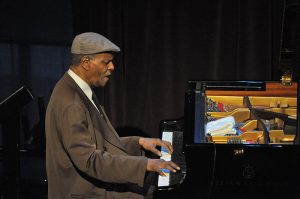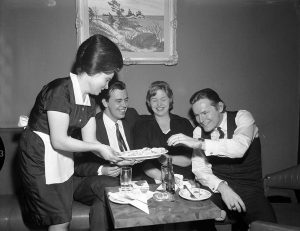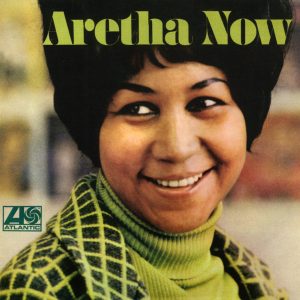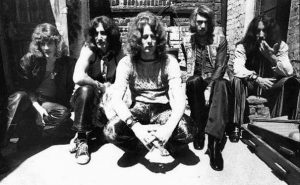The Platters started with the Federal label. Ram saw promise and match them with The Penguins, a group he already managed. The Penguins just had a hit with “Earth Angel,” and Ram was able to use the leverage to get a deal with Mercury Records for both groups.
Ram made personnel changes and honed The Platters’ sound to make them the most romantic of the doo-wop groups. It worked: The Platters were the first African-American group to top the pop charts and are considered one of the most important groups ever in the genre.
The Platters underwent many comings and goings in personal over the years, which led to lawsuits over the use of the name and songs. There are, according to AllMusic, as many as 125 “sanctioned” versions of The Platters performing on the oldies circuit today.
The group’s biggest hits were “Only You” and “The Great Pretender,” which Ram wrote in the washroom of the Flamingo Hotel in Las Vegas. (The version above is from the movie “Rock Around the Clock”) It was the group’s first number one record.
Ram also had a unique arrangement with members of the band: Each would get a 20 percent share in stock, full royalties and payment of their Social Security. As they left the band, they sold their stock back to Ram and his business partner. This gave them rights to the name. This arrangement was later found to be illegal, but seems to suggest that Ram was watching out for the members — at least to some degree — as well as his own interests.
The Platters were inducted into the Rock & Roll Hall of Fame in 1990 and were original inductees into the Vocal Group Hall of Fame in 1998.










Add Comment